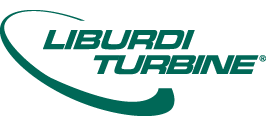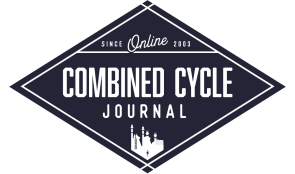Case Study of Previously Repaired GE Frame 7FA Stage 1 Turbine Buckets
Presenter
Justin Kuipers, Senior Material Engineer
Mr. Justin Kuipers is an accomplished materials engineer with 13 years of experience in gas turbine component analysis and repair development. During his career, he has been the lead investigator in hundreds of cases, including failure analysis and life cycle prediction of gas turbine components. Justin has also been active in research and development of repair processes for rejuvenation heat treatment of super alloys (with a focus on single crystal alloys), as well as, wide gap repair processes.
Presentation Synopsis
Case Studies are presented in which a destructive metallurgical analysis was performed on four GE Frame 7FA+e stage 1 buckets which had each been repaired by different repair vendors using different approaches. The metallurgical condition and extent of the prior repairs are presented for each of the buckets following one additional service interval. The analysis included evaluation of the macroscopic condition, base alloy microstructure, stress rupture properties, internal and external surface coating conditions and the tip integrity. The performance and merits of each approach are discussed. The difficulty associated with repair design and execution of heavy-duty gas turbine components can vary significantly with engine design. The high efficiency, advanced technology GE Frame 7FA+e engine presents demanding repair requirements. The first stage bucket employs a hollow design with serpentine cooling passages, showerhead cooling along the leading edge, a tip cover plate and welded and brazed details within the cooling passages. These enhanced design features lead to more challenging repairs with narrower tolerances and therefore less room for error. This has resulted in an increased reliance on metallurgical analysis for evaluating component condition, repair requirements and, ultimately, qualifying the results of repairs. Destructive metallurgical analysis of four different repair approaches for Frame 7FA+e stage 1 buckets are presented in this case study.
Key Takeaways for Users
- Frame 7FA stage 1 buckets have characteristic damage modes to be repaired
- Different repair shops have different repair strategies and processes
- Those different strategies result everything from high-risk operation to good-as-new performance
- In order to allow multiple repair cycles, internal coatings need to be replaced
- Various heat treatments used in repairs, and why they are important
- Critical quality control steps in component repair
- How to reliably extend the service life of valuable components
Contacts
Doug Nagy
Manager – Component Repair
Ontario, Canada
dnagy@liburdi.com
905-689-0734
Justin Kuipers
Material Engineer
Ontario, Canada
jkuipers@liburdi.com
905-689-0734
Jeff Chapin
Business Development Manager – Power Generation
North Carolina, USA
jchapin@liburditurbine.com
704-230-2510
Rob Rowland
Senior Engineer
Manager – IGT Component Repair
North Carolina, USA
rrowland@liburditurbine.com
704-230-2510
About Liburdi Turbine Services Inc.
Liburdi Turbine Services provides turbine engineering including metallurgical analysis, mechanical design, performance, R & D and repair development. LTS provides the benefit of an independent engineering analysis and advanced life extending, refurbishment processes and coatings. Liburdi Turbine Services repair division, located in Ontario and North Carolina, provide a complete range of component refurbishment and advanced life extending processes for the latest class of high performance aero and industrial turbines; including FSR® Rejuvenation, LPM™ Powder Metallurgy, automated welding processes, and unique coatings for erosion, oxidation and corrosion resistance.
Products and Services
Liburdi Turbine Services is unique in comparison to the characteristic third party turbine component repair company, having well over 30 metallurgical, material, aerospace and mechanical engineers in-house. Typically, conventional repairs carried out by others are limited to general weld repairs and strip/recoat and then often retired after 50,000 – 70,000 hours of service per OEM recommendation. Liburdi’s Advanced Repairs are designed and proven to extend the reliable service life to 100,000+ hours amounting in hundreds of thousands of dollars in maintenance savings. At Liburdi we provide repairs for all types and models of gas turbines:
- Heavy Duty Industrial — General Electric, Siemens & Alstom
- Aircraft Engine repairs under Transport Canada FAA authority — GE, P&W, RR
- Aeroderivative Industrial Engines — General Electric, Siemens & Pratt & Whitney
- Light Industrial Engines — Siemens & Solar
Liburdi Advanced Repairs for all Expensive Critical Turbine Components:
- Blades
- Vanes
- Shroud Blocks
- Combustor Segments
- Transition Hot Gas Case and Vane Carrier
- Fuel Nozzles
Liburdi Advanced Repair Processes:
- Full Solution Rejuvenation® (FSR®) to restore Blade and Vane alloys to as-new alloy strength
- LPM® High Strength Powder Metallurgy Restoration for Vanes
- Internal Cooling passages Stripped and Recoated — new coatings internal and external
- Repair and Upgrades for Combustor Components

Website
Address
400 Highway 6 North
Dundas, Ontario L9H 7K4
Canada



